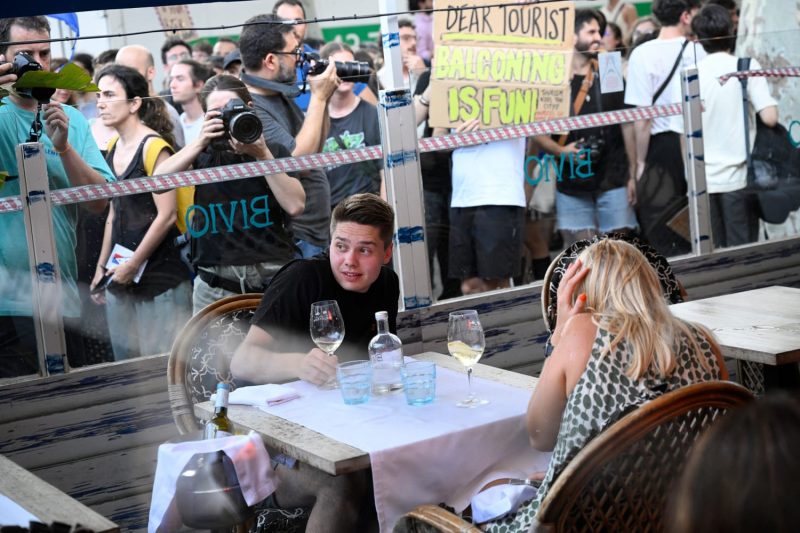Barcelona: Striking a Balance Between Tourism and Local Identity
The recent protests in Barcelona, wherein demonstrators threw items and sprayed travelers with water while shouting tourists go home, have shed light on the complex relationship between tourism and local identity in the vibrant city of Barcelona. While tourism plays a crucial role in the economic prosperity of Barcelona, providing jobs and boosting the local economy, it also presents challenges that have sparked tensions among locals.
One of the major issues that have fueled anti-tourism sentiment is the phenomenon of overtourism. Barcelona, with its stunning architecture, rich culture, and beautiful beaches, has long been a magnet for tourists from around the world. However, the surge in tourist numbers in recent years has led to overcrowding, putting a strain on local infrastructure and resources. Residents have raised concerns about the impact of tourism on their quality of life, pointing to issues such as rising housing prices, increased noise levels, and environmental degradation.
Moreover, the commodification of local culture has also been a point of contention. Many locals feel that the city’s unique identity is being diluted by mass tourism, with traditional neighborhoods transforming into tourist attractions and authentic local experiences giving way to commercialized ventures. The rise of Airbnb and other short-term rental platforms has further exacerbated this issue, as it has driven up rent prices and pushed long-term residents out of the city center.
On the other hand, tourism is undeniably vital to the economy of Barcelona. The tourism industry provides employment opportunities for many locals, ranging from hotel staff and tour guides to restaurant workers and artisans. The revenue generated from tourism also supports local businesses and helps fund public services and infrastructure development. Additionally, tourism plays a key role in promoting cultural exchange and fostering understanding between different communities.
To strike a balance between the benefits of tourism and the preservation of local identity, it is essential for Barcelona to adopt sustainable tourism practices. This involves implementing measures to manage tourist numbers, regulate short-term rentals, and protect the city’s cultural heritage. Collaborating with local communities and stakeholders to develop tourism policies that prioritize the well-being of residents and the environment is crucial in ensuring a harmonious relationship between tourism and local identity.
In conclusion, the recent protests in Barcelona have underscored the need to address the challenges posed by tourism while harnessing its potential benefits. By fostering a more sustainable and community-oriented approach to tourism, Barcelona can safeguard its unique identity and create a more inclusive and resilient future for both residents and visitors alike. Finding common ground between the interests of locals and the demands of tourism is essential in preserving the essence of Barcelona as a cultural gem that thrives on diversity and authenticity.
